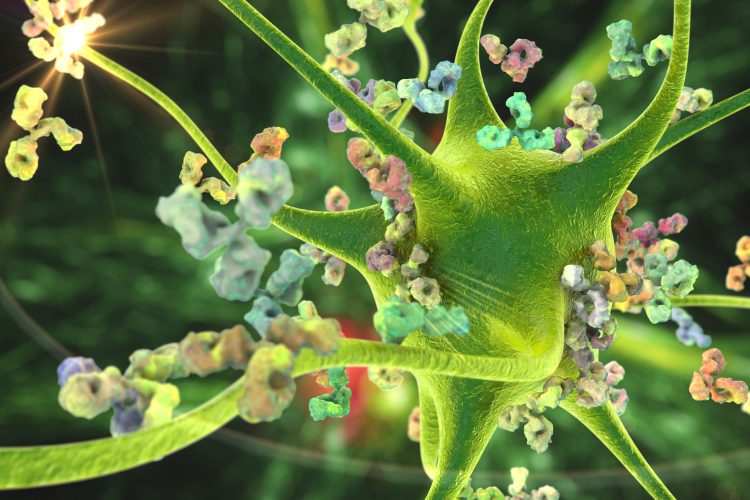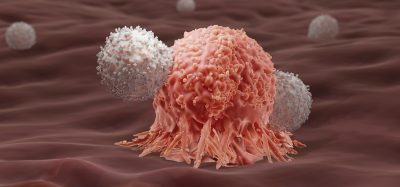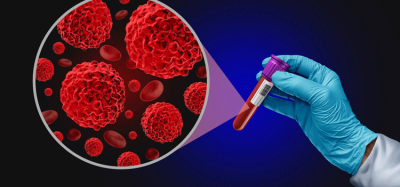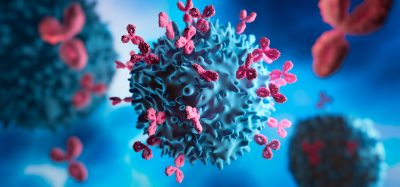Scientists identify key protein fuelling autoimmune attacks
Posted: 11 February 2025 | Drug Target Review | No comments yet
Mass General Brigham researchers found granzyme K (GZMK) drives inflammation in autoimmune diseases, opening new possibilities for targeted treatments.


Researchers at Mass General Brigham have made a significant breakthrough in understanding the root causes of autoimmune and chronic inflammatory diseases. Their study, published in Nature, identifies a protein called granzyme K (GZMK) as a major driver of tissue damage and inflammation. This discovery challenges the century-old understanding of the complement system, a crucial part of the immune response, and offers new hope for targeted therapies.
A new understanding of the complement system
The research team, led by Dr Carlos A. Donado and Dr Michael Brenner, focused on GZMK, a protein found in high concentrations in inflamed tissues. They discovered that GZMK activates the complement system against the body’s own tissues, triggering a cascade of events that result in inflammation and damage.
Our work highlights GZMK as a promising therapeutic target to inhibit complement activation across multiple diseases.
“Our discovery of a new way of activating the complement system, driven by an enzyme produced by cells that are abundant in inflamed tissues, has important clinical implications,” said Donado. “Our work highlights GZMK as a promising therapeutic target to inhibit complement activation across multiple diseases. Unlike traditional therapies that broadly inhibit complement activation, hitting this target could preserve the anti-microbial functions of complement, while specifically inhibiting this harmful pathway in chronically inflamed tissues.”
From observation to breakthrough
The research stemmed from previous work by the Brenner group, which observed high levels of GZMK-producing CD8+ T cells in the inflamed joints of rheumatoid arthritis patients and other affected organs in various inflammatory diseases. This observation prompted them to investigate the role of GZMK in driving inflammatory tissue damage.
Through a series of experiments, the researchers demonstrated that GZMK activates the entire complement cascade, leading to inflammation, immune cell recruitment, and tissue damage. They also found that GZMK was abundant in areas of active complement activation in human rheumatoid arthritis tissue. Furthermore, in animal models of rheumatoid arthritis and psoriasis, mice lacking GZMK were significantly protected from disease, exhibiting reduced inflammation and complement activation.
“These findings underscore the pivotal role of GZMK-mediated complement activation in driving disease and highlight the broad translational potential of targeting this pathway across multiple disease states,” said co-lead author Dr. Erin Theisen.
Hope for targeted therapies
This discovery opens up exciting new avenues for developing targeted therapies for autoimmune and inflammatory diseases. By specifically blocking GZMK, it may be possible to prevent the harmful activation of the complement system without compromising its essential protective functions.
“Our findings provide new insights into how chronic inflammation might be triggered and sustained in autoimmune and inflammatory diseases,” said Brenner. “Moving forward, we will continue to investigate the impact of this pathway across various diseases and are actively working on developing inhibitors to target GZMK, with the hope of offering new, targeted treatments for patients suffering from autoimmune and inflammatory conditions.”
The research was supported by grants from the US National Institutes of Health, the Rheumatology Research Foundation, the NIAMS, and the Dermatology Foundation, as well as the Accelerating Medicines Partnership RA/SLE Network.
Related topics
Biomarkers, Drug Discovery, Drug Discovery Processes, Immunology, Target Validation
Related conditions
autoimmune diseases, Lupus, rheumatoid arthritis
Related organisations
Mass General Brigham
Related people
Dr Carlos A. Donado, Dr Erin Theisen, Dr Michael Brenner








